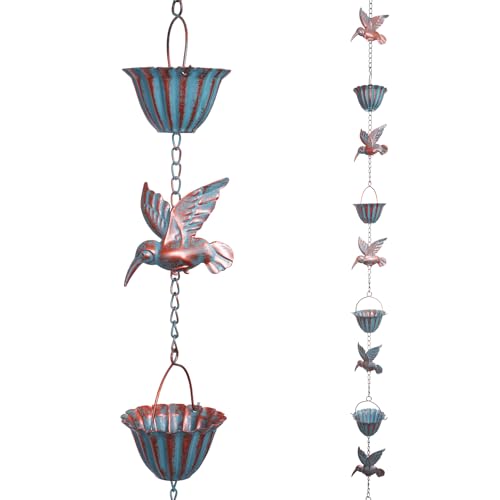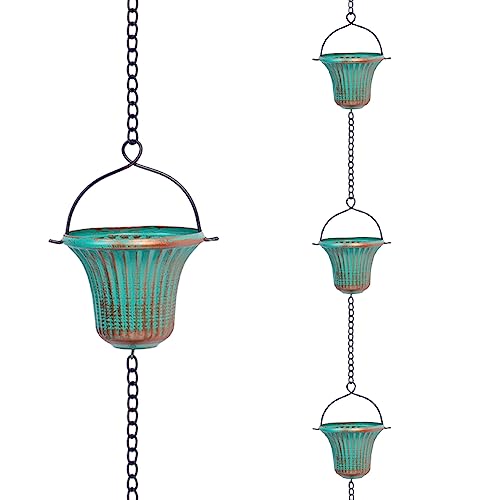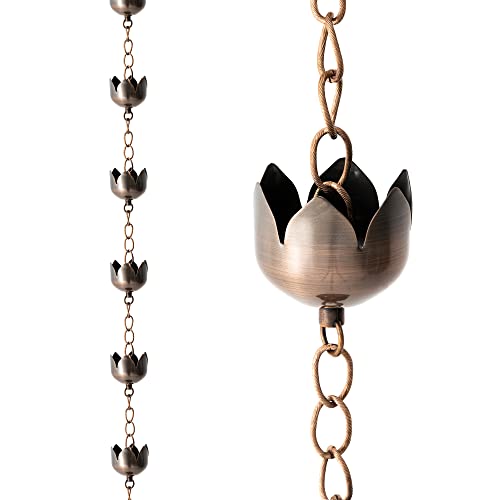6 sustainable reasons to install a rain chain – for a practical yet pretty fall garden upgrade
Rain chains are an eco friendly, long-term solution to sustainable watering


As the fall rains return and the days grow shorter, the efficiency of your home's exterior drainage becomes crucial. You may already be familiar with rain chains. These beautiful, sustainable systems have surged in popularity, proving they are far more than a passing trend. So, why are gardeners and homeowners embracing them, especially this time of year?
A rain chain is essentially an elegant, open-air rainwater harvesting system and a decorative alternative to a traditional, clunky downspout. Easily installed, it works by channelling the heavy rainwater collected in your gutters to where you need it most. Instead of just splashing away, the water is guided down a series of metal cups or rings, often feeding a water butt, barrel, or a flower bed directly.
Installing a rain chain on your home, garden shed, or garage is a fantastic, practical upgrade for the fall season. Beyond their utility, they transform the sound of a seasonal downpour into a calming water feature. Here, we'll explore the great reasons to install a rain chain now, and showcase some of the stunning styles available today.
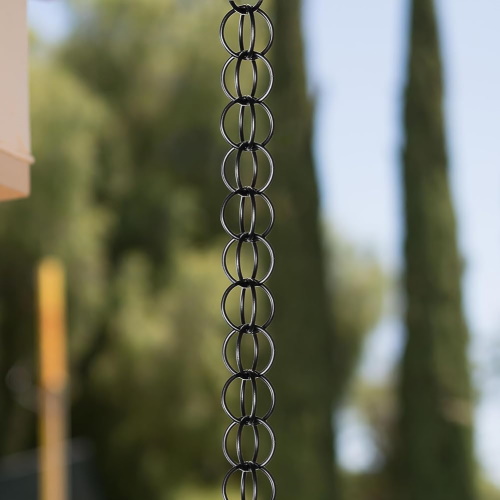
6 reasons to install a rain chain in your yard
A rain chain is one of the simplest and most effective ways to introduce genuine eco-friendly practices to your home and yard.
Unlike major renovations or expensive solar panels, this sustainable system requires minimal effort while delivering immediate environmental rewards. Here are six key reasons to get one this fall.
1. Rain chains are fundamental to modern, eco-friendly garden design
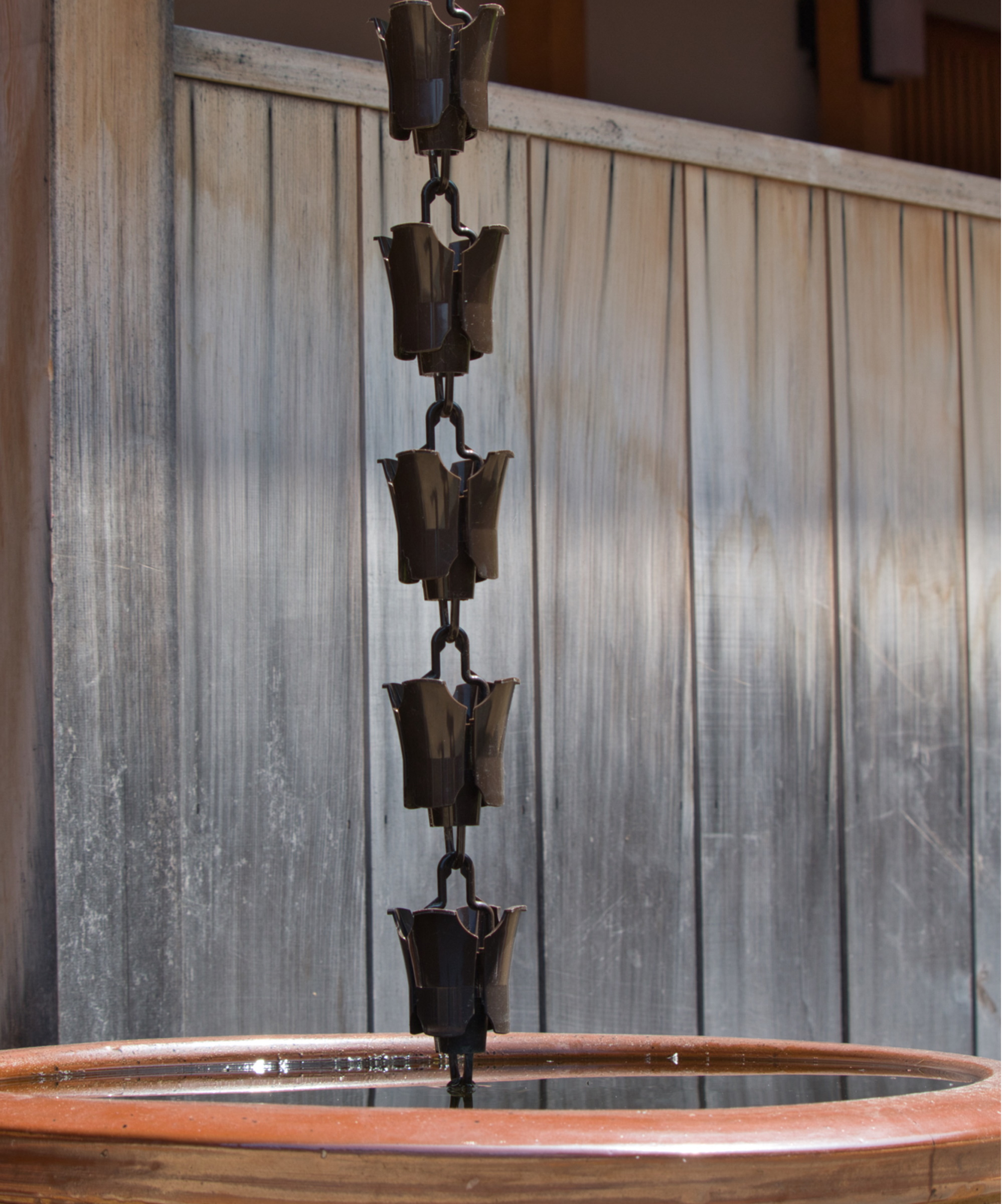
If you're aiming to create an eco-friendly garden, installing a rain chain is one of the easiest and most impactful steps you can take.
This sustainable technology isn't new; rain chains originated in Japan, where they have been used for hundreds of years to gracefully channel water from the roofs of temples and they remain just as popular today.
Design expertise in your inbox – from inspiring decorating ideas and beautiful celebrity homes to practical gardening advice and shopping round-ups.
For modern gardeners, harvesting rainwater simply makes sense. It's the most natural, healthy way to hydrate your plants, lawn, and trees, and it's an easy way to save money on your water bills.
A rain chain makes this collection simple: you can direct the channelled water into a storage container like a decorative pot, water butt, or barrel. Alternatively, you can use the chain to funnel the water directly to parts of your garden that need more irrigation. This could include a dry patch of land or a lush flower bed dedicated to moisture-loving plants such as ferns and astilbe.
2. Rain chains can prevent erosion
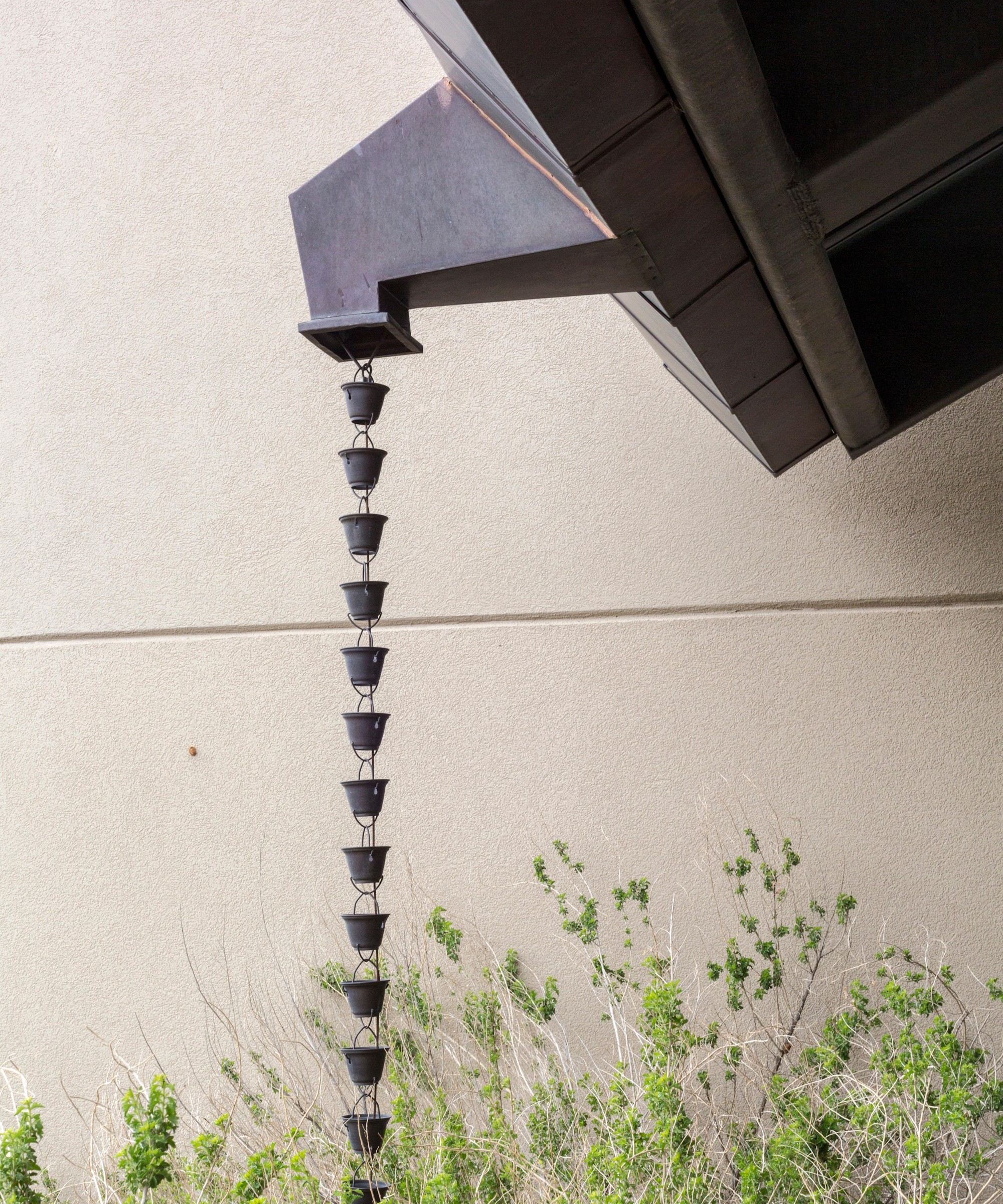
One reason why rain chains are better than downspouts is because in periods of heavy rainfall a downpipe can cause water to gush out with force, which could lead to soil erosion around the base of the spout.
Rain chains provide a gentler flow, thereby protecting your soil from too much damage and also potentially preventing water from affecting your home's foundations.
3. They are low-effort systems to fit and maintain
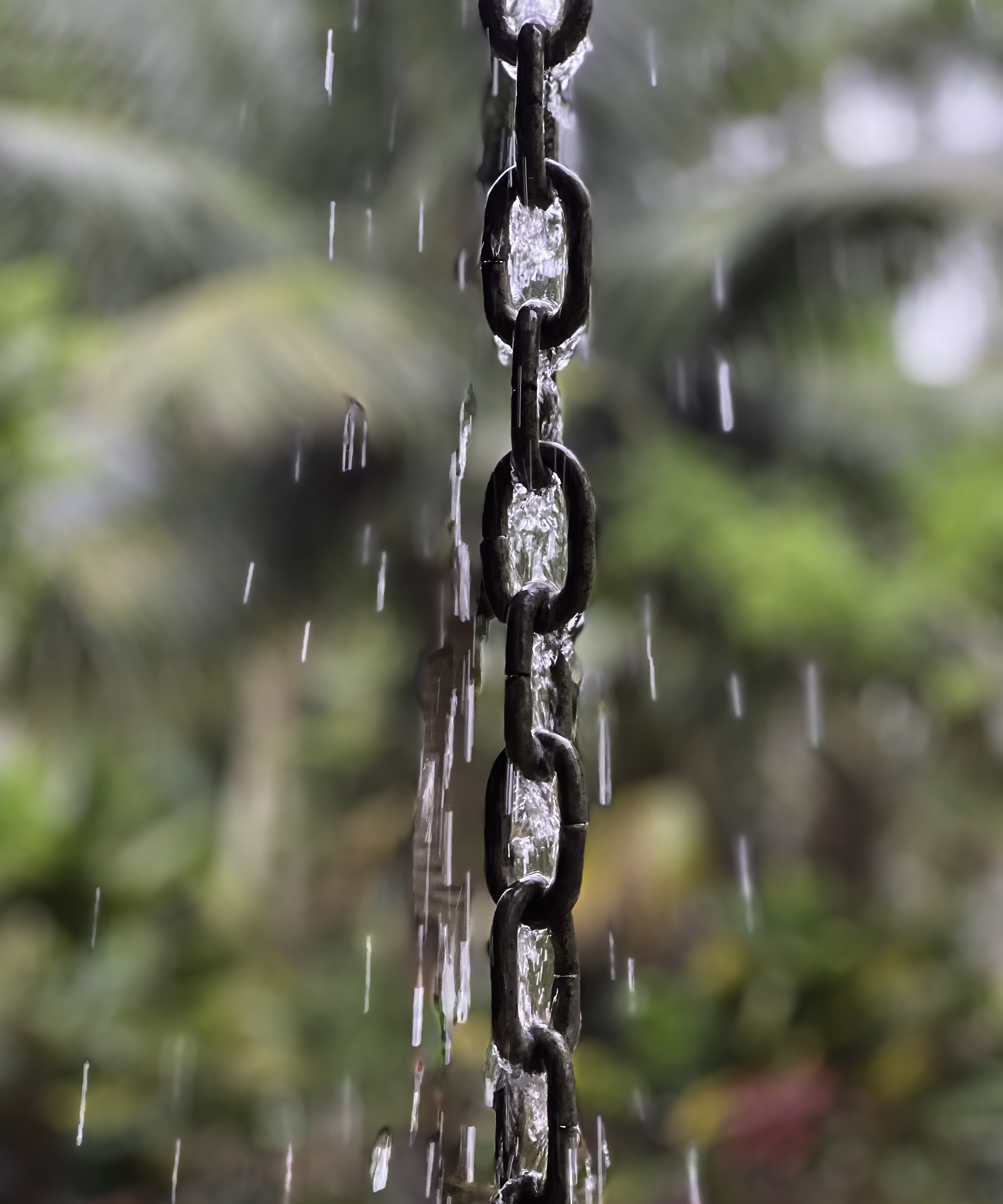
Not only are rain chains an efficient way to harvest rainwater, they also serve as a delightful, meditative water feature. The sound of water cascading down the cups or links creates a soothing natural symphony, making them ideal if you're looking to add sensory elements to your garden design.
Rain chains are incredibly simple to install. All you have to do is remove the existing downpipe and attach the chain directly to the gutter outlet where the pipe used to be. The best models are crafted from durable materials like copper or stainless steel, ensuring they can withstand most weather conditions year-round.
Thinking about what happens to a rain chain in winter, they are built to be robust, but do require a bit of seasonal consideration, especially in areas with harsh winters.
During periods of intense frost and snow, the water frozen on the chain can make it heavy. When properly installed, this shouldn't be a concern. However, if you live in a region that experiences severe, prolonged cold snaps, you might want to consider taking the chain down for the deep winter months to avoid putting excessive stress on your guttering.
If a rain chain isn't working correctly, the first step is always to check the installation to ensure it's positioned exactly where the gutter water naturally flows.
4. Rain chains offer decorative interest
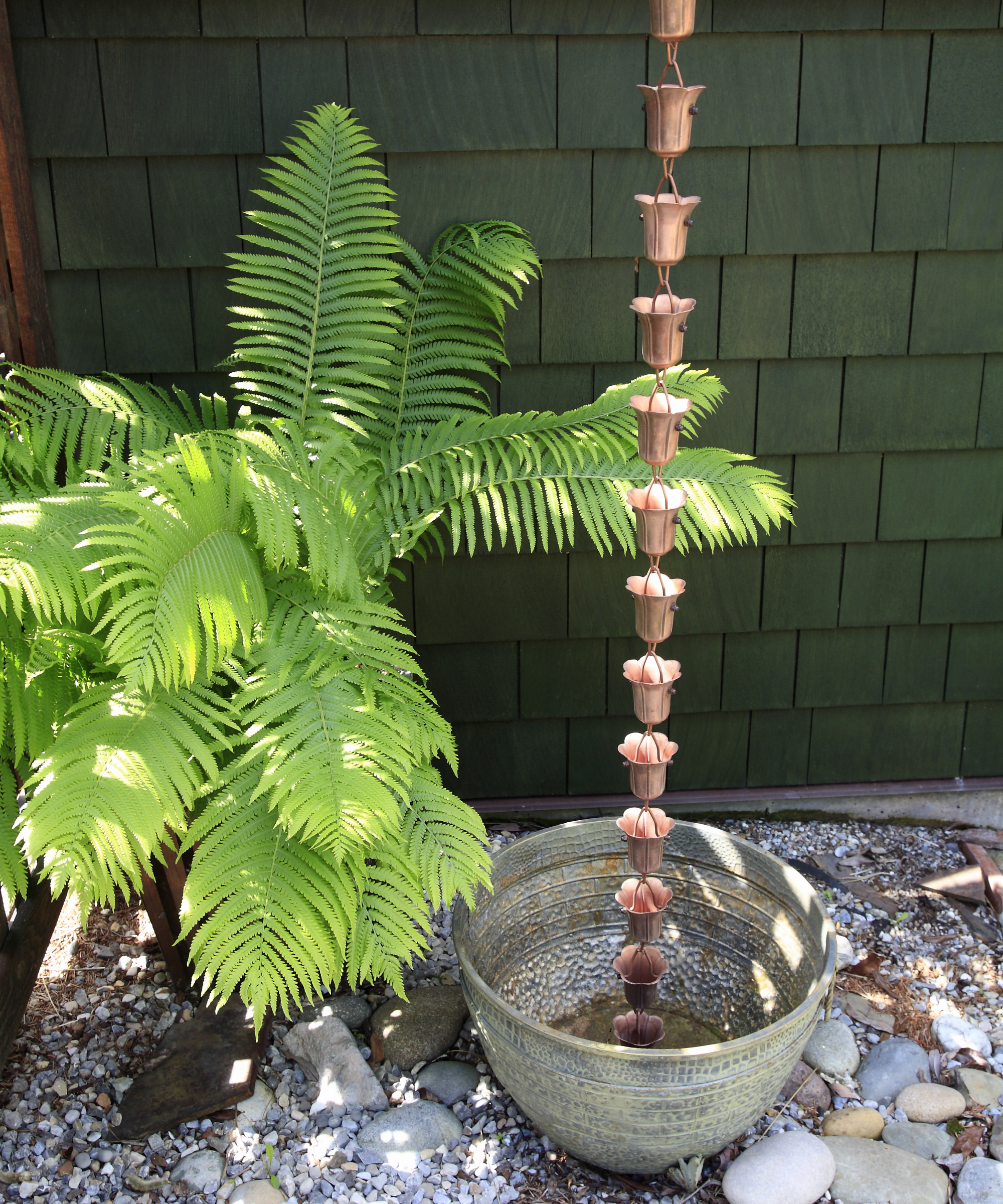
Rain chains add beautiful aesthetic value to your outdoor space, says Janna Bradley, co-founder of Landscape Management Network.
'There are a variety of sturdy metals to choose from when choosing a rain chain, but I always go for copper,' she says. 'A copper rain chain is very durable while also providing a stunning look that will develop over time. The options for copper rain chains are endless; as long as they're the appropriate length you can truly find something that will stand out in your yard while adding to its overall aesthetic.'
Janna adds that when selecting a rain chain, make sure to measure the height of your home from the ground to the gutter. If the chain is too long or short, it won't be able to safely redirect water away from your foundations.
5. Your indoor plants will thank you, too
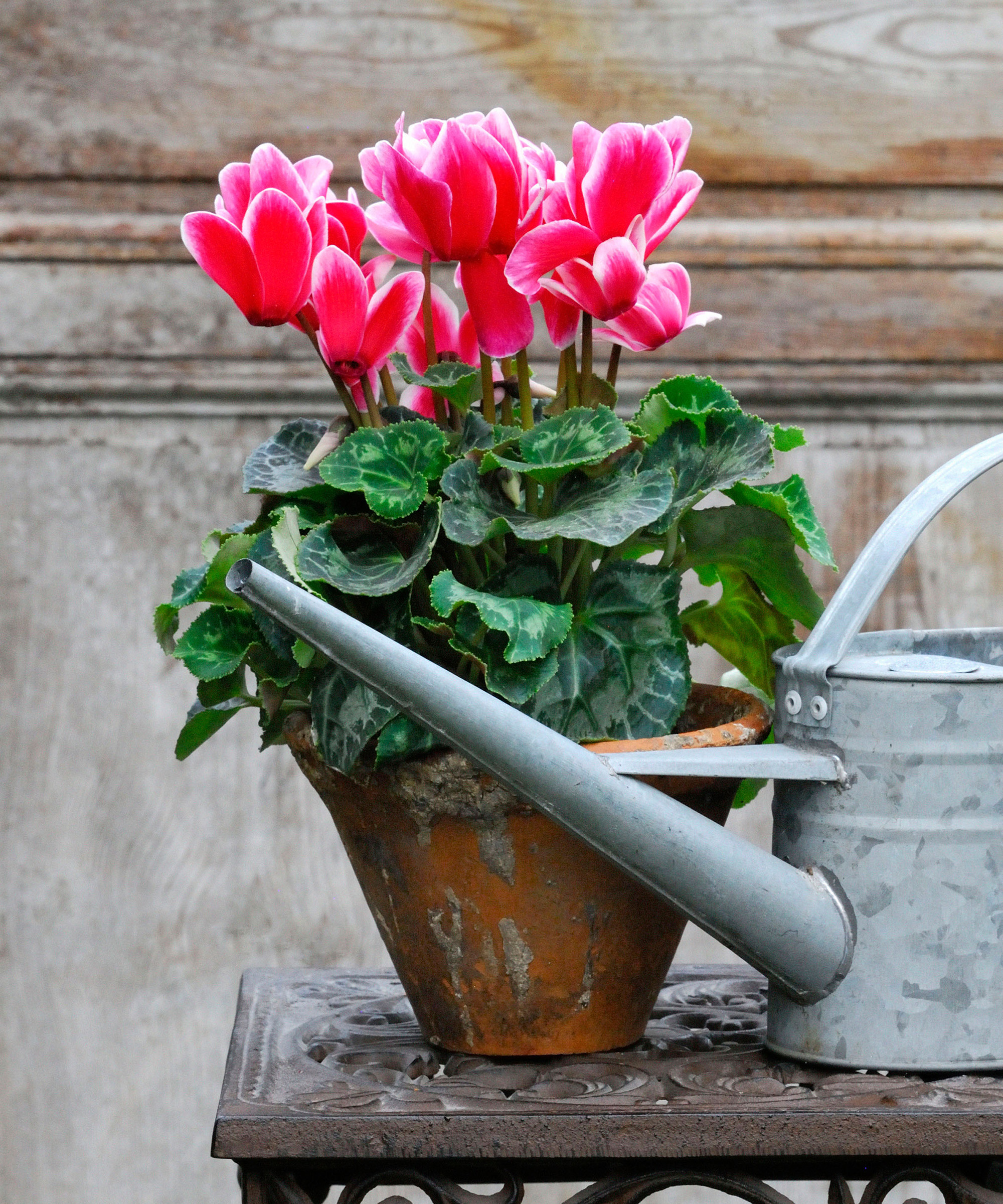
The benefits of harvesting rainwater aren't limited to your outdoor borders and garden beds. Your indoor houseplants will also reward your sustainable efforts with lusher growth and healthy, glossy leaves.
The key lies in the chemical difference between the two sources. Houseplants much prefer rainwater than tap water because it is naturally soft. Unlike treated tap water, rainwater is free of the added chemicals, salts, and high mineral content (like calcium and magnesium) that contribute to the hardness of municipal water. These minerals, along with common additives like chlorine, can accumulate in the soil over time.
Rainwater helps maintain the ideal, slightly acidic pH level of the soil that most houseplants thrive in. Tap water, conversely, tends to be more alkaline and can throw the soil's pH out of balance, potentially hindering the plant's ability to absorb essential micronutrients.
By using rainwater, you are giving your plants the purest drink possible and a small, natural nutrient boost, preventing the chemical build up that can leave leaf tips scorched and growth stunted.
6. Rain chains are wonderful educational tools
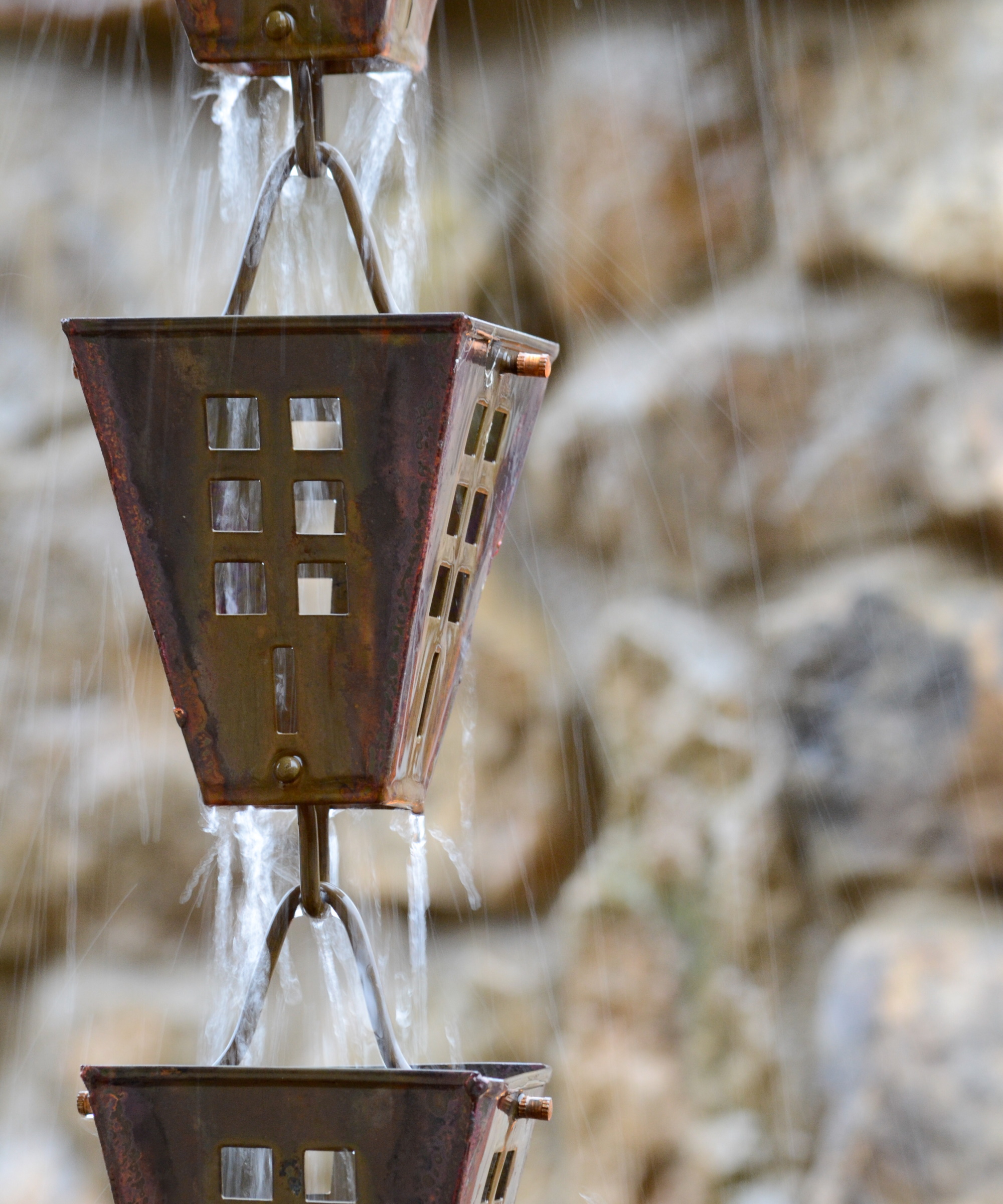
A rain chain is essentially a real-world demonstration of physics in action, specifically fluid dynamics. By watching water flow down the chain, you can study gravity and velocity; observe how gravity accelerates the water as it moves downward and how the shape and surface area of the cups or links affect the water's speed.
They are also great ways of illustrating energy transfer: The chain illustrates how kinetic energy is dispersed. A solid downspout contains the energy, but a chain uses the cups and links to slow the water down, transferring the energy into a relaxing, audible sound.
Rain chains are a good starting point for discussing the water cycle and environmental stewardship. They provide a tangible connection between the rain that falls from the sky and the water we use on the ground.
They directly teach the concept of harvesting and conserving water, showing why collecting rainwater is more sustainable than relying entirely on treated municipal sources.
The ease of collecting and reusing rainwater highlights the value of this natural resource and the importance of conservation, especially in dry periods.
Shop rain chains
There are so many different types of rain chain available to suit whatever style of garden you have, meaning they will work for country garden ideas and modern gardens alike.

Rachel is a gardening editor, floral designer, flower grower and gardener. Her journalism career began on Country Living magazine, sparking a love of container gardening and wild planting. After several years as editor of floral art magazine The Flower Arranger, Rachel became a floral designer and stylist, before joining Homes & Gardens in 2023. She writes and presents the brand's weekly gardening and floristry social series Petals & Roots. An expert in cut flowers, she is particularly interested in sustainable gardening methods and growing flowers and herbs for wellbeing. Last summer, she was invited to Singapore to learn about the nation state's ambitious plan to create a city in nature, discovering a world of tropical planting and visionary urban horticulture.
